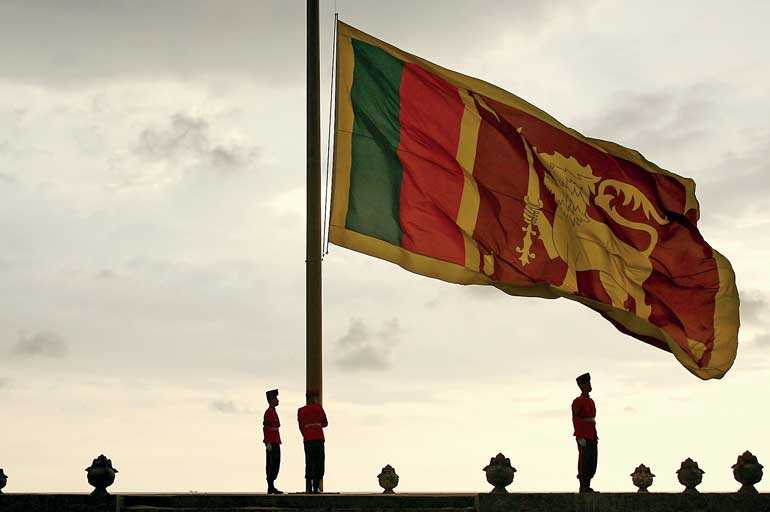Tuesday Feb 17, 2026
Tuesday Feb 17, 2026
Thursday, 18 October 2018 00:24 - - {{hitsCtrl.values.hits}}

By Taylor Dibbert
Mark Field, Britain’s Minister of State for Asia and the Pacific at the Foreign and Commonwealth Office, recently penned a terrible op-ed in The Daily Mirror. The piece coincided with a visit to the country.
“First, it is important to recognise the positives,” Field writes. He cites the work of the Office on Missing Persons (OMP), land returns and demining.
For starters we don’t even know if the OMP will turn out to be an effective body, but history tells us it probably won’t. On land returns, the military still occupies plenty of land in the Northern and Eastern Provinces. And it doesn’t seem like people should be congratulating the Government for returning land that should have been returned long ago.
Besides, the pervasive and irrefutable militarisation of the Northern and Eastern Provinces has wide-ranging, negative consequences for civilians living in these areas. Sustained militarisation also ensures that any hope of genuine national reconciliation isn’t even on the table for the foreseeable future.
On demining, well, if Western diplomats need to cite demining as a positive for the Government, it seems obvious that the reform agenda is in shambles.
“But I must be candid with you: the pace of progress on a number of key issues remains much slower than we had hoped for,” Field writes. Progress?
Field says he’d “like to see much more progress on national accountability and truth-seeking mechanisms that Sri Lanka committed to in 2015.”
But, again, what progress could he be referring to? The Government, including President Sirisena, has repeatedly stated that there’s not going to be any accountability for wartime abuses.
Field goes on: “Next March the [UN Human Rights Council] UNHRC will assess the progress Sri Lanka has made. In Colombo I will be urging the government to drive forward its reconciliation efforts with a clear plan for delivery, and offering the UK’s steadfast support for their efforts.”
And, tellingly here’s his concluding paragraph: “Sri Lanka still has an historic opportunity to take the steps necessary to build enduring stability and prosperity. I firmly believe this is the future that the vast majority of Sri Lankans want, whether they be at home or overseas, and we all have a part to play in achieving that shared goal.”
It’s fundamentally counterproductive to be speaking about war-related reform in Sri Lanka as if that’s something the current administration might actually be interested in.
Sri Lanka has no intention of implementing a credible, comprehensive transitional justice program. And allusions to the March session of the UNHRC are just farcical at this point. Sri Lanka has been making a mockery of the UNHRC for years. This Government has learned that – for international actors – a modicum of stability is far more important that moving boldly to implement important rights-related reforms.
Besides, if Field is indeed sincere about his desire for more progress, he might consider recognising that a soft touch is going to be ineffective.
Mollycoddling Sri Lanka doesn’t work. Transitional justice isn’t really on the agenda. Let’s please stop pretending otherwise.
(Taylor Dibbert is a writer based in Washington, D.C.)